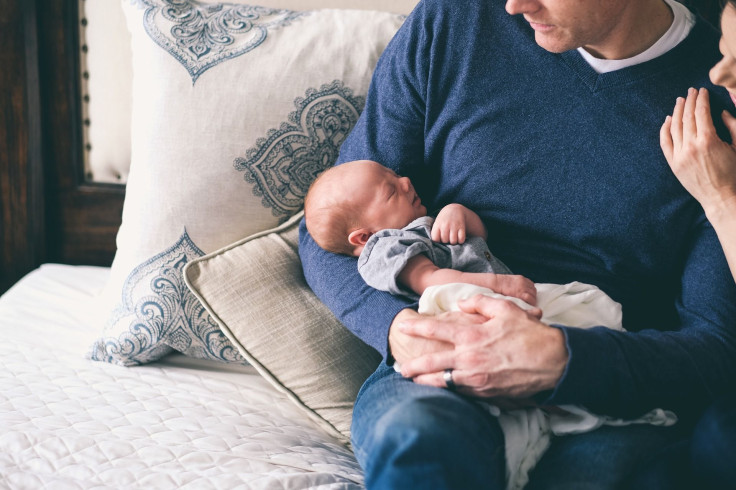Dads With Postpartum Depression: Study Says They Suffer Alone

New dads can become depressed just like moms but their mental health condition could be hard to detect, meaning many depressed fathers won’t get treatment.
There is a lot of focus on the mental and emotional health of new mothers, particularly on identifying and treating postpartum depression. However, moms are not the only ones who can experience mental illness after the birth of a child — dads are at risk for depression as well. That can be a problem, because the fathers may display different signs of the condition that screening methods do not pick up. A study in the Scandinavian Journal of Psychology has found that more new dads may become depressed than previous estimates indicate, and they are not likely to get help.
The study was searching for depression symptoms in dads of newborns and babies up to 18 months old. Almost 450 Swedish fathers filled out online surveys linked to standard depression tests.
“Most fathers reported both traditional and depressive equivalent symptoms, and a subgroup expressed exclusively depressive equivalent symptoms,” the study says.
Depressive equivalent refers to symptoms that are not the ones that classically appear with depression. The fathers who present with these could be showing externalizing symptoms — things like aggressive behavior that are linked to their condition. There are also internalizing symptoms like somatization, in which a mental illness manifests itself in physical ways, like pain, that would require medical help.
But according to the study, the common depression scale used to screen new mothers for postpartum depression does not look for those internalizing or externalizing features.
“This potentially decreases its sensitivity in detecting depression in fathers, as many men actually express depression with somatization or externalizing symptoms,” the study says. “Methods for detecting depression in fathers after the birth of their child are scarce.”
When a father is depressed, it could affect the baby, according to Lund University.
“Depressed parents often become less perceptive to the needs of their child, particularly if the child cries a lot,” the university explained. “Babies of depressed parents tend to receive less stimulation which, eventually, could lead to slower development. In some cases, depression may lead to neglect of the child or inappropriately forceful behaviors.”
Estimates of the number of women who experience postpartum depression vary, but usually hover around 10 percent of new mothers. Scientists are working on finding the cause of this mental illness, and have found that factors like a painful labor and the use of anesthetic during delivery could be factors that affect a woman’s risk level. Mothers of premature babies and those who deliver during certain times of the year may also be more at risk.
When it comes to new fathers, the usual estimate of depression is that it affects 8 percent. But researchers say the way depression tests are designed could be a problem.
“This means that current statistics may not tell the whole truth when it comes to depression in new fathers,” study coauthor Elia Psouni said in the Lund University statement. “The screening method does not capture symptoms which are particularly common in men, such as irritation, restlessness, low stress tolerance, and lack of self-control.”
Of the fathers in the study who reported moderate to severe depression, which could include thoughts of self-harm, about 83 percent had not told anyone about their feelings.
“Telling people you feel depressed is taboo; as a new parent, you are expected to be happy,” Psouni said. “On top of that, previous research has shown that men are often reluctant to seeking help for mental health issues, especially depression; therefore it’s doubtful that they would reveal their suffering to a pediatric nurse.”
Published by Medicaldaily.com



























